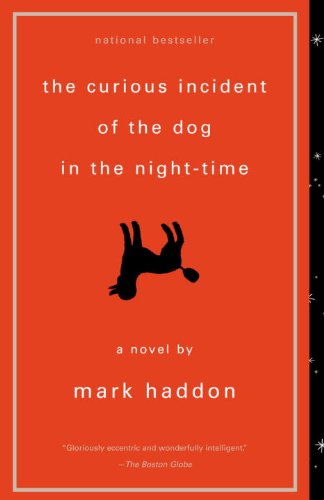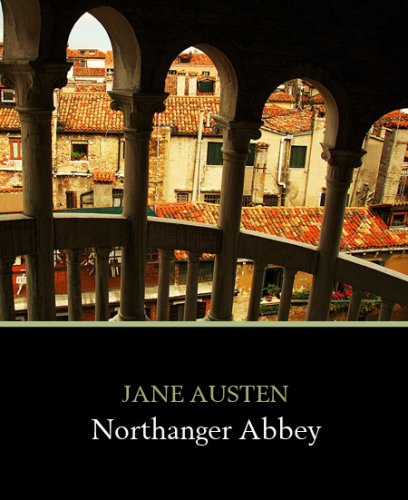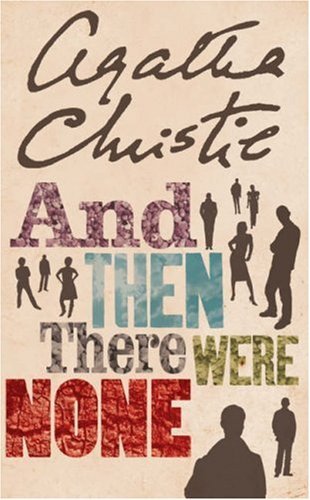That which we call a rose by any other name would smell as sweet -- or so Shakespeare would have us believe. Perhaps that's true, but wouldn't renaming certain roses 'lilacs' and some 'daisies' and others 'mums' begin to get a little confusing?
Ay, and there's the rub in the decision to change one's name after marriage, a decision reserved most often and almost solely for women. Since becoming engaged, I have struggled with this issue. I still haven't come to any clear-cut decision. No matter what I decide, it will be either a bureaucratic or personal nuisance, or possibly both. Should I keep my name, I will constantly be asked to explain to those I encounter why I made such a decision, or having to explain that no, my last name is not the same as my co-conspirator's, it is ___. If I change it, I'll have all the bureaucratic hoops to navigate, contacting all sorts of people and businesses and agencies to let them know that I'm married, my status has changed, and so has my name. (Will I have to do this anyway? I actually have no idea.) By keeping my name, I could be accused of all sorts of things, such as not being committed enough to family, being too selfish, not letting go of the past, and a multitude of other ridiculous accusations that I cannot even fathom. It's tempting to keep my name just to spite -- to challenge -- such senseless judgments and preconceptions (or more appropriately misconceptions) about the role women are expected to play as spouses and mothers.
Further, surnames are so loaded with patriarchal symbolism that it's almost as if I cannot make a completely 'feminist' choice. My last name is that of my father, not that of my mother, etc., etc., back through the family genealogy. And then the confusion of naming children. Hyphenation seems an obvious compromise, but an incredibly imperfect one.
All feminist and social issues and annoyances aside, this has been my name for the past 30+ years. Changing it would inevitably confuse everyone who would have no reason to know that my relationship status is changing in the law's eyes. It would even be confusing to myself, learning to call myself another name, someone else's name.
On the other hand, the co-conspirator has a much more interesting last name than I, as well as one that carries much more clout around here. (Honestly, if that weren't the case, I wonder if this would be as difficult a decision. I wonder if therein lies my answer?) Moreover, certainly there is something deliciously enticing about reinventing oneself under a new name, and this is probably one of the easiest ways to go about that. More importantly, it would be nice to share the same last name with the co-conspirator, as a symbol of being part of the same family, and of starting a new one. But in the process, it would be nice to honor both of the families from which we came instead of just one.
Is there a non-awkward way to do that?
These small things, a niftier, snazzier last name that carries a little weight + a reinventing of my public persona currently are of equal weight on the scale with all the rest of my stick it to the 'man' mentality. Ideally, the social issues wouldn't play into it. I'd freely admit to overthinking, but this is my - our - identity, which is not something that can necessarily be taken lightly.
At least I have a few more months to decide.
Sunday, January 30, 2011
Thursday, January 27, 2011
The Curious Incident of the Dog in the Night-Time
Christopher Boone, a 15-year-old "mathematician with some behavioural difficulties," tells his story in straight-forward, matter-of-fact, unembellished terms. He appears to be autistic, but on a can-function-in-society (mostly) level, with substantial.. mind-quirks. He's incredibly intelligent, especially when it comes to math. The maths and other digressions added to the novel, I felt, and were interesting in and of themselves. (Is it wrong that one of today's goals is to have fun with quadratic equations, just for kicks? I miss math.) Christopher is actually an easy character to relate to. I could relate to the need for timetables, and definite solutions.
His parents, of course, have trouble relating to their son. The stress of trying to raise someone who thinks so very differently from them takes its toll, and manifests in outrageous, and yet realistic, ways. Although the entire story is told from Christopher's point of view, the emotion and intentions of the other characters come through to the reader, despite that Christopher himself cannot interpret this data in any meaningful way beyond the fact of what is said and what is happening.
It is interesting that Haddon himself has little to no experience with autism, or autistic children. In fact, he did very little research on the subject in writing the book. Those who live with or know autistic people may be a better judge, but I felt the book was true to what I understand of that particular mental-mode. Autism fascinates me, but I also agree with what Haddon wrote about the subject:
His parents, of course, have trouble relating to their son. The stress of trying to raise someone who thinks so very differently from them takes its toll, and manifests in outrageous, and yet realistic, ways. Although the entire story is told from Christopher's point of view, the emotion and intentions of the other characters come through to the reader, despite that Christopher himself cannot interpret this data in any meaningful way beyond the fact of what is said and what is happening.
It is interesting that Haddon himself has little to no experience with autism, or autistic children. In fact, he did very little research on the subject in writing the book. Those who live with or know autistic people may be a better judge, but I felt the book was true to what I understand of that particular mental-mode. Autism fascinates me, but I also agree with what Haddon wrote about the subject:
Labels say nothing about a person. They say only how the rest of us categorise that person. Good literature is always about peeling labels off. And treating real people with dignity is always about peeling the labels off. A diagnosis may lead to practical help. But genuinely understanding another human being involves talking and listening to them and finding out what makes them an individual, not what makes them part of a group.And that is the take-away from the novel as well.
Thursday, January 20, 2011
Snow Day
Although I did not enjoy my late snowy drive to work, I certainly enjoyed the luxury of lounging around the house for a couple hours before leaving. Slowing drinking coffee, deciding on the next book to read,* hanging out with the cats, puttering around the house... Really, I should have just stayed home.
*I've narrowed it down to The Curious Incident of the Dog at Nighttime, Unbroken: A World War II Story..., The Panic Virus, American Gods, and The Great Transformation. (Right, so I haven't narrowed it down all that much.) I'm still reading Delusions of Gender, which is excellent, but not something I want to read just before sleeping. That's a daylight book.
Wednesday, January 19, 2011
Northanger Abbey
I just finished Austen's Northanger Abbey. I had never read it before, having only consumed Pride & Prejudice, Sense & Sensibility, and Persuasion. Either I am unaccustomed to her style, or this just was not one of my favorites. I enjoyed the book, although the situational comedy of the first half of the book, with its rather ridiculous, superficial characters became rather trying before too long.
That it was a parody of the Gothic novels of the times was quite clever, and I undoubtedly would have appreciated the parody all the more had I been more familiar with the plot devices of such novels, although the novel itself alludes to and pokes fun at the plots enough to have understood the basic premises of such fiction. Catherine is well-versed in such novels, and seems to allow her over-active imagination, combined with her stunning naivete, to convince herself that her fantastical notions of murder and deceit are not only possible, but probable. She eventually learns to be more discerning of the characters of those she meets, and no one can be cross with her for long.
Catherine is not as pretty or clever as P&P's Elizabeth, but she is perhaps warmer, less guarded and more affectionate, whose naive honesty seemed refreshing in the battles of wits the object of her fancy subjected her to, despite that she could not always follow his hints.
Overall, I enjoyed the novel. It was a very light and fast read, and rarely delved into much seriousness. The conclusion, albeit a bit hurried, did not disappoint.
That it was a parody of the Gothic novels of the times was quite clever, and I undoubtedly would have appreciated the parody all the more had I been more familiar with the plot devices of such novels, although the novel itself alludes to and pokes fun at the plots enough to have understood the basic premises of such fiction. Catherine is well-versed in such novels, and seems to allow her over-active imagination, combined with her stunning naivete, to convince herself that her fantastical notions of murder and deceit are not only possible, but probable. She eventually learns to be more discerning of the characters of those she meets, and no one can be cross with her for long.
Catherine is not as pretty or clever as P&P's Elizabeth, but she is perhaps warmer, less guarded and more affectionate, whose naive honesty seemed refreshing in the battles of wits the object of her fancy subjected her to, despite that she could not always follow his hints.
Overall, I enjoyed the novel. It was a very light and fast read, and rarely delved into much seriousness. The conclusion, albeit a bit hurried, did not disappoint.
Saturday, January 15, 2011
And Then There Were None
I always enjoy Agatha Christie novels, and this failed to be the exception from the norm. 10 unlikely characters, all strangers, find themselves more or less trapped on an island. A mysterious recording is played, accusing each, more or less, of murder. All display varying degrees of righteous indignation, and all either deny outright that they had anything to do with each of the deaths, or at the very least, that they were blameless. And then... one by one, they start to die.
The characters are all suspicious of one another, and accusations fly. None know anyone well enough to trust them at their words, and yet that's all they have to go on. The psychological effects make for quite an entertaining and clever progression. Rather than rushing through the explanation, I might have paused to consider the developments. I'd like to think I'm clever enough to have deduced, at least loosely, who the culprit was, but perhaps I give myself too much credit.
At any rate, it's an enjoyably quick read, much more perplexing than frightening.
The characters are all suspicious of one another, and accusations fly. None know anyone well enough to trust them at their words, and yet that's all they have to go on. The psychological effects make for quite an entertaining and clever progression. Rather than rushing through the explanation, I might have paused to consider the developments. I'd like to think I'm clever enough to have deduced, at least loosely, who the culprit was, but perhaps I give myself too much credit.
At any rate, it's an enjoyably quick read, much more perplexing than frightening.
Tuesday, January 11, 2011
Sophie the cat, reliable friend since 2003
That makes it sounds like she’s dead; she’s not – she’s right here, sleeping on the floor like a lump. But, as life is changeable, I thought I’d mention the only constant I’ve known since I adopted this little furry critter in Union Square over 7 years ago. Friends, inamoratos, roommates, books, shoes, apartments, cities, schools, jobs and habits good and bad have all come and gone, but she’s always been around.
Sunday, January 9, 2011
The Floating Palace
This afternoon, K and I made an impromptu visit to the symphony to see amazing feats of strength, flexibility and graceful coordination set to live music. Apparently Circus Flora is St. Louis's very own circus act, and has been around since 1986. St. Louis is one of only three lucky US cities to have its very own classical circus.
You're probably thinking, circus, how hoaky, how childish. You'd be wrong. This is circus how it's meant to be, with ridiculously flexible and strong acrobats doing entire performances in mid-air on ropes, ribbons and rings. One act involved two women holding on alternatively to a giant ring and each other with only the tops of their feet. Another involved a man and woman tangling themselves into giant ribbons high above the stage, at one point with the woman holding on to the man only by his head.
The most nerve-wracking of all was of course the tight rope act. No net. For the finally, two men were on bicycles with another rod between them, connected by life-vest looking shoulder rests. A woman climbed up on the rod, and sat down on a chair balanced on the rod, as the two men pedaled across the wire. No one fell.
All in all, I found it quite an amazing performance, making me miss my younger, more flexible days. And, as always I was reminded of the wonderful things St. Louis has to offer, things that I fail to take advantage of nearly often enough.
You're probably thinking, circus, how hoaky, how childish. You'd be wrong. This is circus how it's meant to be, with ridiculously flexible and strong acrobats doing entire performances in mid-air on ropes, ribbons and rings. One act involved two women holding on alternatively to a giant ring and each other with only the tops of their feet. Another involved a man and woman tangling themselves into giant ribbons high above the stage, at one point with the woman holding on to the man only by his head.
The most nerve-wracking of all was of course the tight rope act. No net. For the finally, two men were on bicycles with another rod between them, connected by life-vest looking shoulder rests. A woman climbed up on the rod, and sat down on a chair balanced on the rod, as the two men pedaled across the wire. No one fell.
All in all, I found it quite an amazing performance, making me miss my younger, more flexible days. And, as always I was reminded of the wonderful things St. Louis has to offer, things that I fail to take advantage of nearly often enough.
Saturday, January 8, 2011
Snow Crash
I finally finished Snow Crash. I took too long to read it, with too many distractions taking away from a book that is meant to be devoured in a short time span, which made the read less enjoyable than it might have been otherwise. The book centers around Hiro Protagonist, a talented hacker and equally capable samurai swordsman, and Y. T., or Yours Truly, a small, blonde, 15-year-old Kourier, who 'surfs' through the streets on her high-tech 'plank' by attaching herself to unwilling cars to pull her along through traffic allowing her to successfully deliver all her packages. In this dystopian future, what we know as the United States has been divided up into corporate-run sovereign neighborhoods, some run by the Mafia, some by Mr. Lee's Greater Hong Kong, some by the United States of America, or the Feds for short, where hackers work 12 hours a day on some tiny piece of a giant puzzle about which they know nothing. These hackers are subjected to constant polygraph testing, on the fear that they will leak some of what they are working on, and the pieces might be put together by an outsider.
The novel plays on the male/female, rational/chaos, good/evil, autonomous/automaton dichotomies, which I always take issue with, since the comparisons are always addledly saturated with old gender stereotypes. The female representing the irrational, chaos and disorder and the male order and rationality. Here, Asherah, an ancient Sumerian goddess, is considered to be responsible for some kind of virus that infects the minds at their most basic linguistic level, disallowing creative, autonomous thought, and rendering those infected obedient to the will of the mastermind who unleashed the virus. The characters in the novel theorize that the dueteronomists created or modified the bible to be a vaccination to combat the irrationality of the sect of the religion infected by the 'virus' of Asherah (female goddess) worship.
Snow Crash also tackles linguistic theory along with ancient Sumerian mythology, posing the theory that the ancient Sumerian language might sound a lot like glossololia (speaking in tongues), or the language before the Tower of Babel fell. Apparently, no spoken language shares any traits with Sumerian, and many do not share traits with each other. It's all very complicated and utterly fascinating - I'm not doing it any kind of justice here. All in all, the novel is a bit like the next fall of Babel, which is equated as a good thing.
I was a bit disappointed with the end, perhaps because there was absolutely no denouement or conclusion, only climax, but that might be personal taste. I'm not really sure, on second thought, that any wrapping up was really necessary. All in all, it was a great read, and I'd recommend it to anyone interested in science fiction, mythology, religion, computers, and fun.
The novel plays on the male/female, rational/chaos, good/evil, autonomous/automaton dichotomies, which I always take issue with, since the comparisons are always addledly saturated with old gender stereotypes. The female representing the irrational, chaos and disorder and the male order and rationality. Here, Asherah, an ancient Sumerian goddess, is considered to be responsible for some kind of virus that infects the minds at their most basic linguistic level, disallowing creative, autonomous thought, and rendering those infected obedient to the will of the mastermind who unleashed the virus. The characters in the novel theorize that the dueteronomists created or modified the bible to be a vaccination to combat the irrationality of the sect of the religion infected by the 'virus' of Asherah (female goddess) worship.
Snow Crash also tackles linguistic theory along with ancient Sumerian mythology, posing the theory that the ancient Sumerian language might sound a lot like glossololia (speaking in tongues), or the language before the Tower of Babel fell. Apparently, no spoken language shares any traits with Sumerian, and many do not share traits with each other. It's all very complicated and utterly fascinating - I'm not doing it any kind of justice here. All in all, the novel is a bit like the next fall of Babel, which is equated as a good thing.
I was a bit disappointed with the end, perhaps because there was absolutely no denouement or conclusion, only climax, but that might be personal taste. I'm not really sure, on second thought, that any wrapping up was really necessary. All in all, it was a great read, and I'd recommend it to anyone interested in science fiction, mythology, religion, computers, and fun.
Subscribe to:
Posts (Atom)






